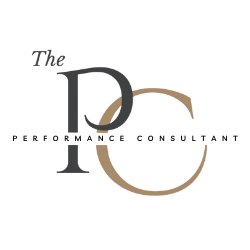HDL Cholesterol - Is Having More Enough?
Cardiovascular disease remains the leading cause of death worldwide, the risk of which is increased by a multitude of lifestyle factors, and minimised/mitigated by maintaining healthy lifestyle habits and behaviours such as resistance training, cardiovascular exercise, sport, maintaining a healthy diet etc. The "curse" of the high performer is the neglect of the good behaviours and/or overindulgence in negatively contributing factors/behaviours in the pursuit of success.
When it comes to heart health, high-density lipoprotein (HDL) cholesterol has long been heralded as the “good” cholesterol. But here’s the kicker: recent research reveals that simply raising HDL levels might not be enough to reduce cardiovascular risk. Although one might assume that simply raising HDL itself would be enough to reduce cardiovascular disease risk, this study shows that instead, it’s HDL 𝙛𝙪𝙣𝙘𝙩𝙞𝙤𝙣 - the ability of HDL particles to transport cholesterol out of the arteries - that could be the key to better cholesterol status. For those who want to optimise every aspect of their well-being, understanding this nuance is crucial.
A recent study (attached) sheds light on how omega-3 fatty acids (P-OM3) and extended-release niacin (ERN) can significantly improve HDL functionality, regardless of traditional cholesterol measures...
𝗥𝗲𝘁𝗵𝗶𝗻𝗸𝗶𝗻𝗴 𝗖𝗵𝗼𝗹𝗲𝘀𝘁𝗲𝗿𝗼𝗹: 𝗜𝘁’𝘀 𝗡𝗼𝘁 𝗝𝘂𝘀𝘁 𝗔𝗯𝗼𝘂𝘁 𝗤𝘂𝗮𝗻𝘁𝗶𝘁𝘆
Traditional thinking equates higher HDL-C (HDL cholesterol) levels with better cardiovascular health. However, recent evidence shows that increasing HDL-C alone may not reduce cardiovascular disease (CVD) risk. For instance, drugs like cholesterol ester transfer protein (CETP) inhibitors raised HDL-C levels significantly but failed to improve cardiovascular outcomes which is ultimately what matters. Even more, genetic mutations linked to high HDL-C, such as in the scavenger receptor B1 (SR-B1), are associated with increased CVD risk .
This has shifted the focus from merely raising HDL-C to improving HDL function, which includes its capacity to remove cholesterol from the arteries and transport it to the liver.
𝗧𝗵𝗲 𝗚𝗮𝗺𝗲-𝗖𝗵𝗮𝗻𝗴𝗲𝗿: 𝗛𝗗𝗟 𝗙𝘂𝗻𝗰𝘁𝗶𝗼𝗻𝗮𝗹𝗶𝘁𝘆
HDL’s primary role is to mediate reverse cholesterol transport (RCT), a process that removes cholesterol from arteries and transports it back to the liver for excretion. This process helps prevent plaque buildup that can lead to heart attacks and strokes.
HDL-apolipoprotein A-I exchange (HAE) is a cutting-edge measure of HDL functionality. It reflects how efficiently HDL particles can exchange and transport cholesterol, a function directly linked to heart protection. HAE goes beyond traditional HDL-C measurements and captures a more dynamic aspect of heart health.
𝗡𝗶𝗮𝗰𝗶𝗻 𝗮𝗻𝗱 𝗢𝗺𝗲𝗴𝗮-3𝘀
If you’re striving for peak performance, you already know that every aspect of your health matters. Supplements like extended-release niacin (ERN) and prescription omega-3 fatty acids (P-OM3) are known to affect lipid levels, but they also significantly impact HDL functionality.
In a study involving 56 subjects with metabolic syndrome, researchers investigated the effects of ERN and P-OM3 on HDL functionality. After 16 weeks of treatment, both supplements showed significant improvements in HAE, reflecting enhanced HDL function . Here’s what the data revealed:
𝗡𝗶𝗮𝗰𝗶𝗻 (𝗘𝗥𝗡) increased HAE by 15.1%, enhancing HDL’s ability to transport cholesterol efficiently. Even more impressive, niacin boosted HDL function on a per-unit basis by 20%, meaning your HDL is working harder without necessarily increasing in numbers.
𝗢𝗺𝗲𝗴𝗮-3 𝗙𝗮𝘁𝘁𝘆 𝗔𝗰𝗶𝗱𝘀 (𝗣-𝗢𝗠3) delivered a 28% boost in apoA-I specific exchange activity - the measure of HDL's functional power - without increasing HDL-C levels. The most notable finding was that this improvement occurred without a significant increase in HDL-C or apoA-I levels, indicating that omega-3s can boost HDL function independent of traditional cholesterol metrics (i.e. HDL-C levels).
𝗖𝗼𝗺𝗯𝗶𝗻𝗮𝘁𝗶𝗼𝗻 𝗧𝗵𝗲𝗿𝗮𝗽𝘆 of niacin and omega-3s also improved HAE, though by a smaller margin (10%). The combination therapy didn’t significantly raise apoA-I specific activity, suggesting that while it improves HDL function, its effect may be less potent than the monotherapies.
𝗧𝗵𝗲 𝗙𝘂𝗻𝗰𝘁𝗶𝗼𝗻𝗮𝗹 𝗔𝗽𝗽𝗿𝗼𝗮𝗰𝗵 𝘁𝗼 𝗛𝗲𝗮𝗿𝘁 𝗛𝗲𝗮𝗹𝘁𝗵
The study underscores an important shift: focusing on HDL functionality, not just HDL-C levels, is essential for those looking to optimise heart health. Improving HDL’s ability to transport cholesterol can help prevent the plaque buildup that leads to heart disease, making your cardiovascular system more resilient. By integrating omega-3s or niacin into your regimen, you can help optimise the efficiency, function and protection of your cardiovascular system.
If you’re the kind of person that's always looking to optimise - your schedule, your workouts, your diet -why should your approach to heart health be any different? Understanding the functional potential of HDL means you’re not just looking at the numbers but focusing on the efficiency and quality of those HDL particles.
𝗙𝗶𝗻𝗮𝗹 𝗧𝗮𝗸𝗲𝗮𝘄𝗮𝘆𝘀 & 𝗔𝗽𝗽𝗹𝗶𝗰𝗮𝘁𝗶𝗼𝗻
In the fast-paced, high-performance world, the smallest improvements can make the biggest difference; especially if your goal isn't just want to perform well, but to sustain it over the long haul. If you’re already taking steps to protect your heart, consider adding a layer of sophistication by focusing on HDL functionality with niacin and omega-3 supplementation, boosting HDL’s ability to clear cholesterol, and improving long-term cardiovascular health.
However, until more data becomes available, given that the combination therapy group in this study showed - surprisingly - worse outcomes than either monotherapy, I would focus on incorporating a high quality omega-3 supplement instead of niacin; given that it's impact on HDL function was greater.
Below are some examples of high EPA & DHA (important - these are the most helpful parts of fish oil) omega-3 supplements:
For those that get fishy burps from capsule versions, consider a liquid alternative:
NOW Foods Liquid Omega-3 (Lemon) - what I use personally as zero fish taste
Wiley's Finest Peak Omega-3 (Super Strength)
I would recommend at least 2 grams of total EPA/DHA per day, but really, the magic starts to happen at 4-6 grams per day.
